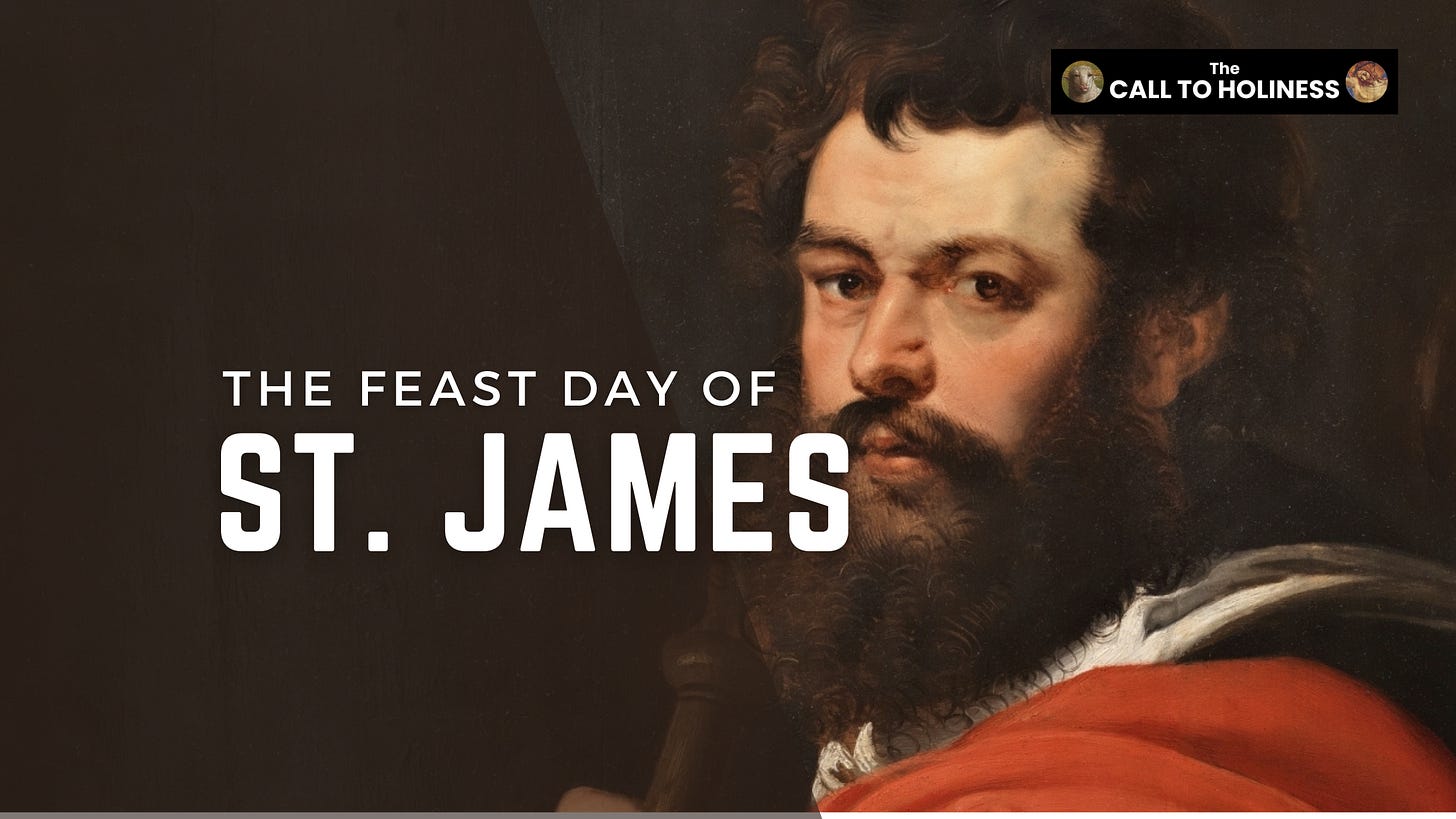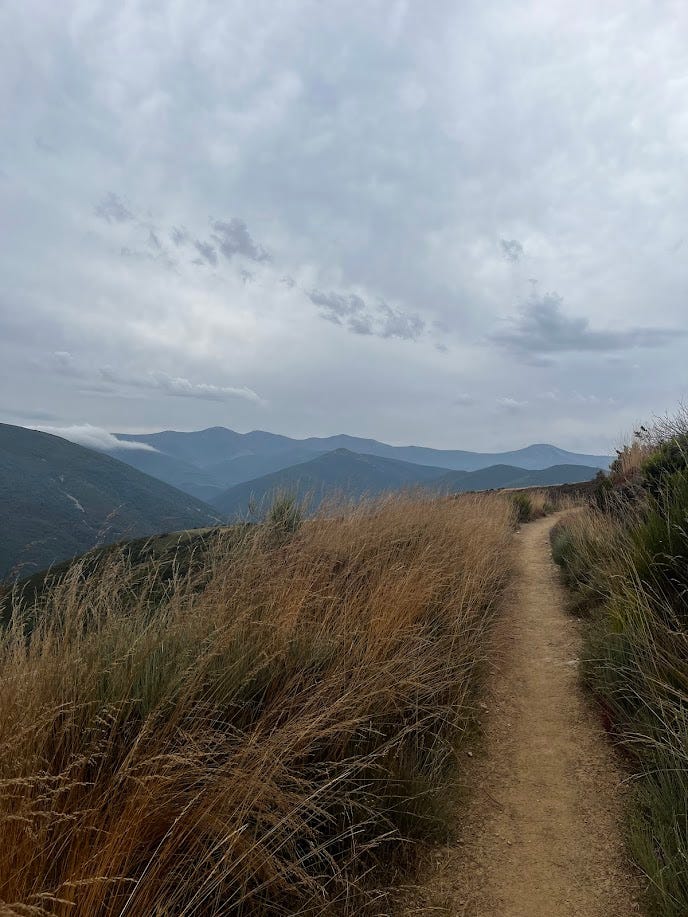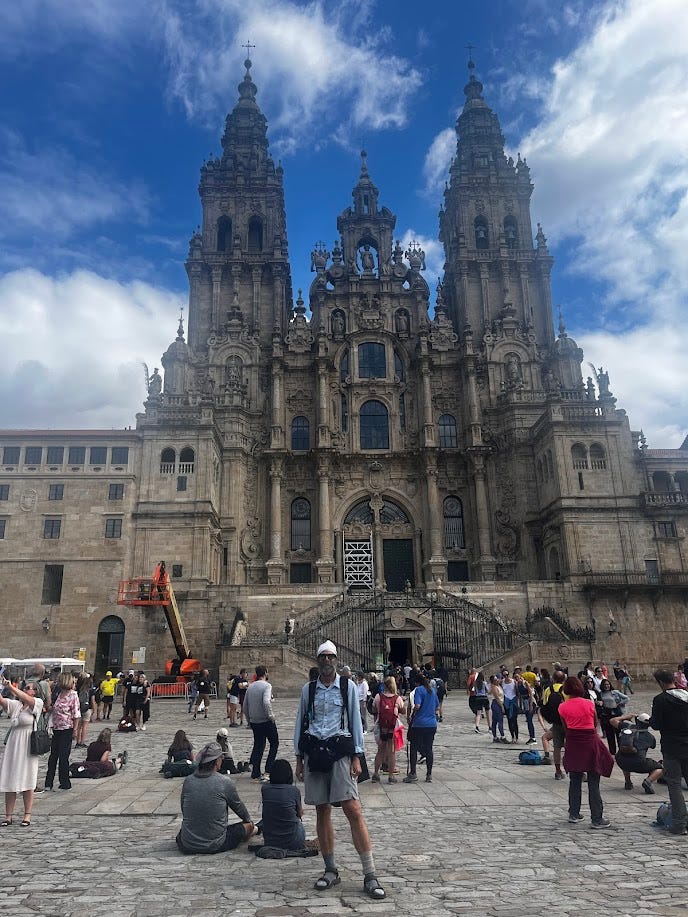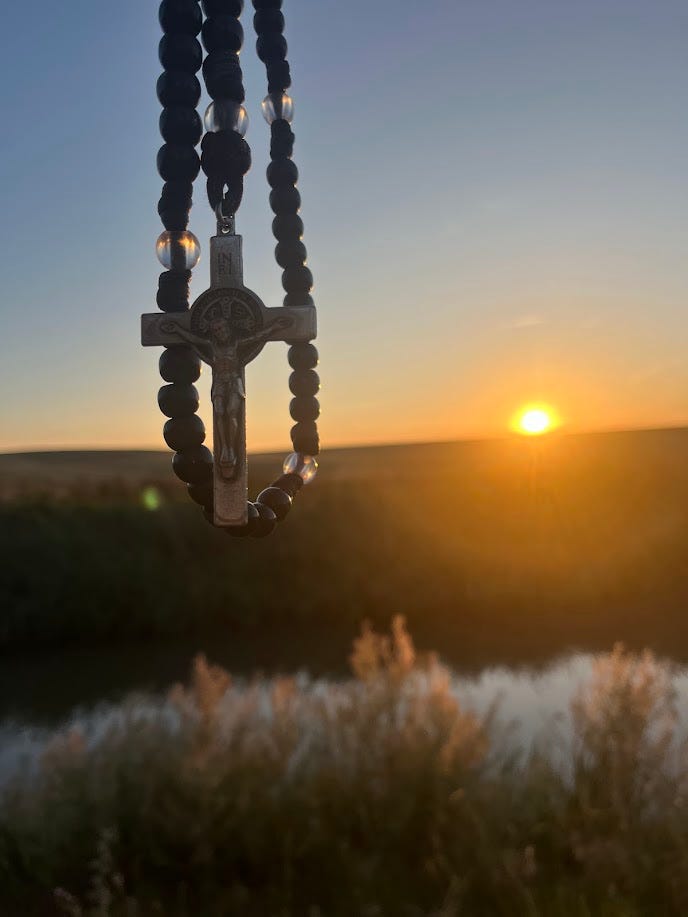Sitting Beside Christ: St. James and the Call to Surrender
A personal reflection on the Feast Day of St. James, the Apostle and Martyr
The Way of St. James
Last year I walked the Way of St. James, better known as the Camino Francés. Starting in St. Jean in France and ending in Santiago de Compostela, it is one of Europe’s great medieval pilgrimage routes. For centuries pilgrims have journeyed along this path to venerate and pray at the tomb of St. James the Apostle.
Today, on St. James’ Feast Day, I found myself reflecting not only on that journey but on the deeper meaning of “the Way of St. James.” While the name often refers to the Camino itself (one of many routes across Europe), it also speaks to something greater—the way of friendship with Christ.
The Acts of the Apostles tells us James was the first of the Twelve to be martyred, put to death by Herod Agrippa for proclaiming Christ (Acts 12:1–2). Eusebius preserves an early tradition from Clement of Alexandria, recounting how James’ accuser was so moved by his confession of faith that he too declared himself a Christian. Tradition says both men were executed together, with James forgiving his accuser before they died.
The Way of St. James, then, is not simply a physical road, but the path of holiness—a life shaped by friendship with Jesus and faithfulness to His call, even unto death. The Camino is not just a “bucket list” walk, but a pilgrimage of conversion and surrender.
One Gospel scene comes to mind each year on St. James’ feast: the moment when James and his brother John—though in Matthew’s account it is their mother who speaks—ask Jesus for places of honor at His right and left (Matt. 20:20–28; Mark 10:35–45). Jesus responds with a probing question: “Can you drink the cup that I drink?”—hinting at the suffering and sacrifice that true discipleship requires.
The Fathers of the Church often saw in this scene a lesson about ambition misplaced by a misunderstanding of Christ’s kingdom. Yet Jesus does not rebuke them harshly. Instead, He invites them to grow into deeper friendship—a friendship willing to share in His chalice of suffering. St. John Chrysostom notes how this early ambition eventually gives way to a life fully surrendered to Christ, culminating in James’ martyrdom.
At the Last Supper, Jesus Himself defined this friendship: “Greater love has no man than this, that a man lay down his life for his friends… I have called you friends, for all that I have heard from my Father I have made known to you” (John 15:13, 15). St. Thomas Aquinas described charity as amicitia—friendship—between God and human beings. Because Christ shares everything He has heard from the Father, we are not mere servants but friends. Martyrdom, then, is not defeat but the highest expression of this friendship: a sharing in Christ’s self-offering and life.
Pope Benedict XVI once wrote: “If we let Christ into our lives, we lose nothing, nothing, absolutely nothing of what makes life free, beautiful and great. Only in this friendship are the doors of life opened wide.” Friendship with Jesus is true freedom—the freedom to love as He loves. This is the Way of St. James.
When I walked the Camino, I carried my own questions. I was in a season of transition, leaving behind life as an entrepreneur and learning to serve in Catholic ministry, asking God what He wanted of me. The world is noisy, and it can be hard to hear Christ’s voice. The Camino gave me quiet, prayer, and simplicity. I deliberately avoided reading or listening to music, hoping to listen more deeply to Him. Like James, I sensed God calling me away from ambition and into friendship—a surrender not to a position of honor, but to walk humbly with Christ.
Tradition tells us that after his martyrdom, James’ disciples brought his body to the Iberian Peninsula, where it was buried in Galicia. Whether or not James himself preached in Spain, the veneration of his relics drew countless pilgrims through the centuries. The discovery of his tomb in the ninth century turned Santiago into a place of prayer and renewal. Even with debates about historical details, the Church emphasizes what matters most: the spiritual fruits of pilgrimage and the encounter with Christ that changes hearts.
On this feast, I am struck by the transformation of James: from a man seeking worldly honor to one who became the first apostle to die for Christ. His life reminds us that discipleship is not about places of power but about embracing whatever chalice Christ gives us. Through grace, we too can walk this path of friendship, surrender, and love.
Please keep me in prayer as I prepare to walk a series of Caminos in Spain in the coming months.
St. James, pray for us.
© 2025, Mission Surrender, LLC. All Rights Reserved.






